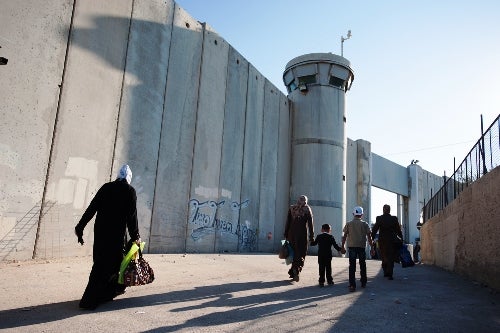 As we do every weekend, my friends and I headed to the city of Ramallah in the West Bank one recent Sunday to have breakfast and enjoy the warm days of the Palestinian Spring at a local café. As we sat there discussing our lives, we couldn’t help but hear a conversation taking place at the table next to us, where five young Palestinians were complaining about the lack of jobs. The group of friends, it seemed, were all fresh university graduates who had been looking for work for months with no luck. What grabbed my attention most was that they were all blaming the Paris Protocol for their situation—saying “it has put the Palestinian economy back years from where it should be!”
As we do every weekend, my friends and I headed to the city of Ramallah in the West Bank one recent Sunday to have breakfast and enjoy the warm days of the Palestinian Spring at a local café. As we sat there discussing our lives, we couldn’t help but hear a conversation taking place at the table next to us, where five young Palestinians were complaining about the lack of jobs. The group of friends, it seemed, were all fresh university graduates who had been looking for work for months with no luck. What grabbed my attention most was that they were all blaming the Paris Protocol for their situation—saying “it has put the Palestinian economy back years from where it should be!”
It is not unusual to hear this from Palestinians. In fact, once in a while, people take to the streets to demonstrate against the Protocol, the agreement that governs Palestinian economic relations with Israel. It has been in place for more than 20 years now. The question that comes to mind is the reason why most Palestinians are unhappy with the Paris Protocol?
Research data shows that the structure of the Palestinian economy has significantly deteriorated over the last 20 years . In fact, the economy has been de-industrialized, with the share of the manufacturing sector dropping from 18% of economic output in 1995 to 12% now. The size of the agricultural sector in Palestine has halved . Private investment, hovering at about 15%, has been low and clearly not enough to dent unemployment, which stands at 26%.
Furthermore, a quarter of Palestinians live below the poverty line .
A new World Bank report that I authored with other colleagues shows the Palestinian Authority (PA) suffering from substantial revenue losses—estimated at $285 million per year—under the revenue-sharing arrangements outlined in the Paris Protocol.
The Protocol was designed for an interim period of five years: During that time, Palestinians could form their own institutions and build their capacity to manage their economic affairs. By the end of the interim period, it was anticipated that a permanent status agreement would have been reached to guarantee Palestinian political and economic independence. The failure of negotiations on such an agreement between the parties led to the de facto extension of the Protocol far beyond the period it was designed for. As a result, it has become outdated, and unable to serve Palestinian interests.
Nor have some of the Paris Protocol’s provisions been implemented as originally envisaged. For example, the Paris Protocol foresaw the free movement of goods and labor between the Israeli and Palestinian economies . But the situation on the ground is very different: Over the years, a large number of checkpoints and roadblocks have been erected, hindering movement within the West Bank as well as to and from it, and significantly increasing transaction costs. A policy insisting on permits is also in place to control the number of Palestinians working in Israel. In Gaza, the situation since 2007 has been even more difficult, with an economic blockade imposed.
Research by the World Bank and others shows that the Palestinian economy has enormous potential . The conditions currently in place have kept it performing far below from where it could be, and given rise to a population of young people unable to see a better tomorrow. It is crucial that this hidden potential be unleashed to create a better future for coming generations. Otherwise, as experience has shown us, mounting desperation and the lack of opportunities will lead to more unrest, and push the parties that are in disagreement further away from peace.


Join the Conversation